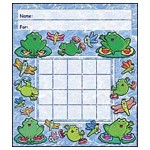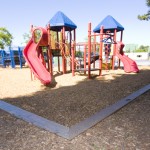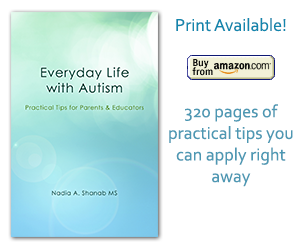All What An Assistive Dogs Can Bring To The Family
By Nadia Shanab | autism, general advice, parenting, tipsThe proverb says: The dog is man’s best friend. Dogs are loyal and they love their masters unconditionally (I prefer to use the word masters over owners). They communicate without language, and understand the body language. If your child doesn’t talk or has poor verbal skills she/he can still have a social life. A dog would be a close friend,
Eye Contact
By Nadia Shanab | autism, general advice, parenting, tipsThe human development has three components: Physical (body), cognitive (learning), and socio-emotional development. The three components are tightly related and should develop harmoniously and simultaneously from the first day of birth. (1) For a typically developed child the vision skills must develop automatically along with the motor and cognitive (learning) skills. Many children with autism
Teach Flexibility
By Nadia Shanab | autism, general advice, parenting, tipsOne of the most characteristic traits of autism is rigidity, inflexibility, love for sameness and repetitive behavior. Why? Because it is easier to redo something than do something new. Even neurotypical people have a hard time making changes in their lives. It is easier to keep a routine. Change always comes with some effort. Tips
Continued: Tips for Sensory Problems
By Nadia Shanab | autism, general advice, parenting10- Ball Chair It is a big rubber ball seated on a four wheels base. Instead of sitting on a regular chair, fidgety agitated kids can enjoy sitting quietly and calmly on ball chairs. They are rare in special education classes because they are expensive. 11- Play Dough A great learning tool. Rolling, squeezing and
Tips for Sensory Problems
By Nadia Shanab | autism, general advice, parentingThese simple tools can be used at school and at home. They are easy to acquire and they don’t take too much room. 1- The “Write-on Wipe-off” board I simply called it the “white board”. I bought it at Lakeshore (it is learning store) www.LakeshoreLearning.com for $4.95, it is a two sided board, one is lined
Sensory Problems
By Nadia Shanab | autism, general advice, parenting, tipsWhat appears to us as a misbehavior, is in fact a reaction of autistic children to their overwhelming environment. Often times they are oversensitive (hypersensitive). On the other hand, they can be indifferent to the input to their senses or under sensitive (hypo sensitive). If they get overstimulated they try to do anything to self-regulate
Be Positive
By Nadia Shanab | autism, parenting, tipsWhen you tell a child — especially with special needs — “don’t“, you leave her/him with no options. When you give an alternative or a substitute, you are giving her/him an opportunity to correct or modify the inappropriate behavior or action. What should you do? Use the affirmative form instead of the negative form when you
Visual Timer
By Nadia Shanab | autism, parenting, tipsAutistic children rely intensively on their visual skills. I always make sure to use a visual timer along with the daily schedule. The visual timer has the advantage of giving a real feeling of time. It helps estimate the elapsed time and anticipate the remaining time. It compares to the difference between a digital watch








